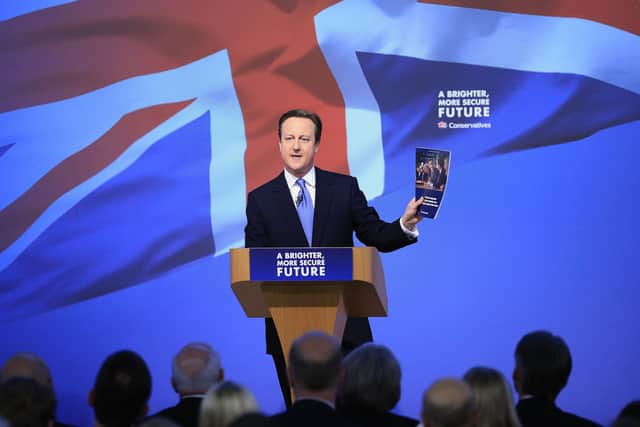Polls are reverse-engineered to deliver outcomes that suit the narrative of whoever is paying for them - David Behrens
That’s why the makers of boiled sweets never commission surveys on tooth decay. And why brewers avoid the subject of alcoholism. They know it would play unfavourably, as they say in marketing-land.
And if the statistics somehow confounded expectations and worked in their favour, who would believe them anyway? If you saw a headline in Monday’s papers that read “Most dentists recommend sugary sweets” you’d assume it was April Fool’s Day – not just because it’s palpably ridiculous but because where the heck can you find a dentist these days?
Advertisement
Hide AdAdvertisement
Hide AdYet one story this week slipped through the net. It was on Wednesday that the pressure group Nature 2030 published a survey postulating that more than half the country thinks Sir Keir Starmer should reverse his earlier reversal on Labour’s green agenda and reinstate its promise to spend £28bn a year on environmental projects.


The pollsters who questioned 2,000 voters on Nature 2030’s behalf said 54 per cent of them believed Starmer should have stuck to his original plan. But at what cost?
Nature 2030 is a coalition of 83 conservation groups including Butterfly Conservation, the Beaver Trust and better-known names like the RSPCA, all of them trying to persuade politicians to do more for the environment.
I’m sure that in the broadest terms, most of us would support that. But do 54 per cent of us really want the next government to prioritise beavers over pressing issues like the cost of living, healthcare and not triggering a global war? If that was how the pollsters had phrased the question the answer would have been very different.
Advertisement
Hide AdAdvertisement
Hide AdThat’s exactly why they didn’t. Polls today are reverse-engineered to deliver outcomes that suit the narrative of whoever is paying for them. They ask leading or loaded questions to get the ‘right’ responses and ignore anything that might steer the respondents off-message.
Here’s an example. If you were asked whether, on a scale of one to five, you liked seeing butterflies, you’d almost put your tick in box five. But your pen might hover a little longer if the question broadened the argument. “Would you be prepared to shell out £5,000 for a new boiler in your home if it helped improve biodiversity?”
We don’t know exactly what Nature 2030 asked its 2,000 sample but it’s a safe guess it wasn’t that. It couldn’t have been because quite apart from anything else, polls don’t come cheap. You have to pay a specialist firm to conduct them and no-one can afford to gamble their marketing budget on the off-chance that the results will be favourable.
Yet surveys like this are a staple of our news diet, especially with an election around the corner. I counted two dozen of them on the national news wires this week alone and while not all of them made it into print they will have done the rounds of social media where no-one checks the veracity of anything.
Advertisement
Hide AdAdvertisement
Hide AdMost did not raise an eyebrow because the results, while predictable, were at least plausible. But the improbability of Nature 2030’s findings was a red flag about the pitfalls of forming opinions in this way.
I’ve commissioned a few polls over the years, in different jobs and on widely diverse subjects but all with a common purpose – to further whatever argument my employers were promoting. Most were inconsequential but they were taken very seriously indeed by the firms asking the questions, who didn’t want their reputations tarnished by any hint of impropriety.
I spent a day at the London headquarters of Gallup, the venerable American polling company we’d hired at enormous expense to canvas opinion on some trifling matter that seemed important at the time and they blanched at my flip suggestion that the data they collected could be manipulated in any way.
They were right: the answers people gave them were sacrosanct. The trick was to ask the right questions in the first place and never to ask the most important one of all: why do you think that?
Advertisement
Hide AdAdvertisement
Hide AdThat was David Cameron’s mistake in 2016. “Do you think we should leave Europe?” Not “why do you think we should leave Europe?” He used to be a marketing man; he should have known that.
There will be many more polls as we head towards the only one that matters, all of them trying to ram home the views of the organisations that paid for them. It’s their names and motives you should consider before jumping to conclusions; they will tell you far more than the numbers in the headlines.
Comment Guidelines
National World encourages reader discussion on our stories. User feedback, insights and back-and-forth exchanges add a rich layer of context to reporting. Please review our Community Guidelines before commenting.